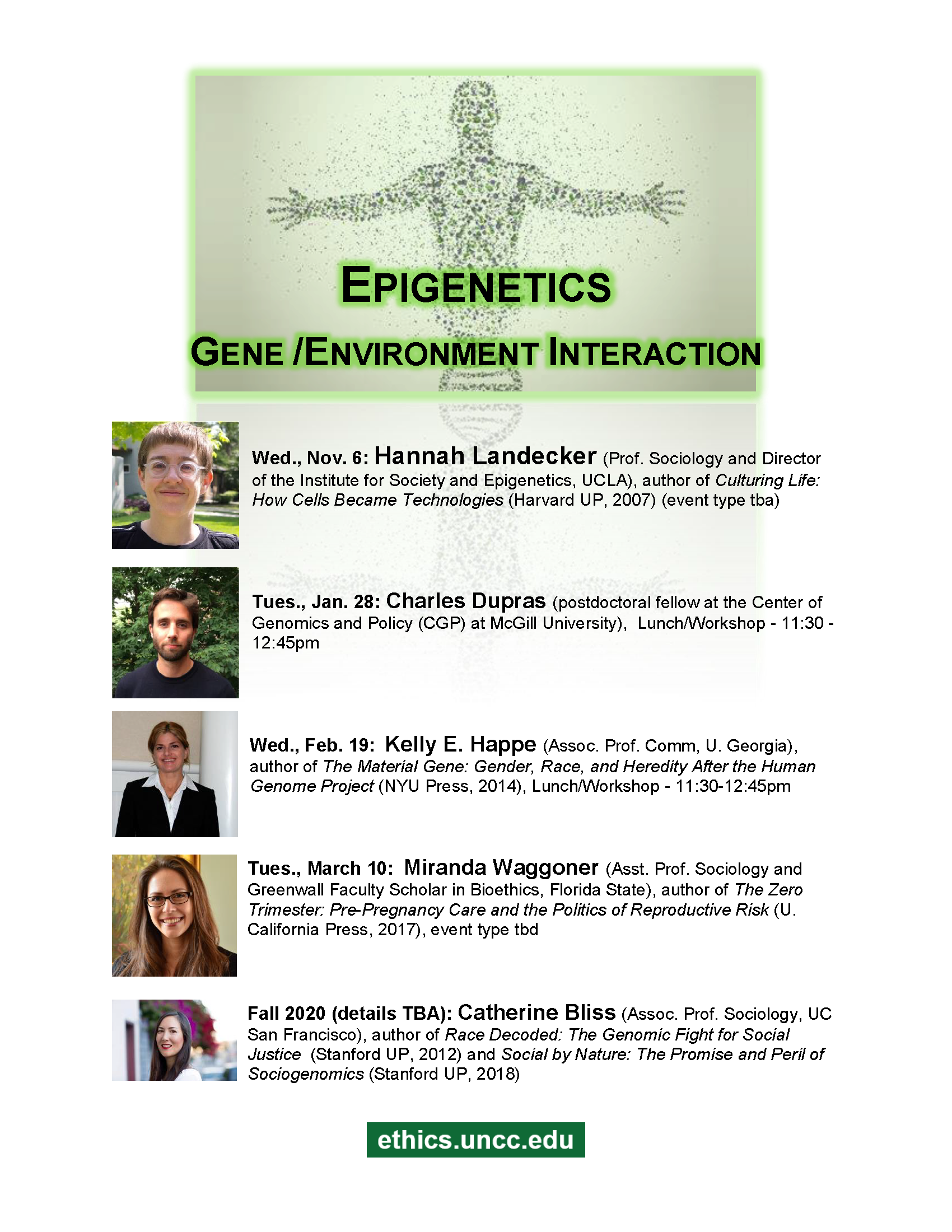
-
Prospective Students
-
Faculty and Staff
-
Current Students
-
Alumni and Friends

Scientific research increasingly points to the importance of “epigenetics” – factors that alter gene activity without changing the underlying sequence – to health. Epigenetic modifications can change when and how a gene expresses itself, for example, and can lead to increased risks of conditions ranging from metabolic syndrome to lupus to various cancers. Some of these effects appear to be reversible, but a body of research strongly suggests that early-life or even in utero exposure to some environmental factors can affect someone’s health for the rest of their lives, by changing when and how their genes express. Some research even suggests that epigenetic changes can be passed on from parents to children – raising the possibility of heritable, genetic-related conditions that occur without mutations in the underlying genetic sequence.
Epigenetics thus necessitates a reassessment of the roles of genes and environment in health, as well as enabling discussion of how environmental factors interact with genetic information to drive health in individually-differentiated ways. The rise of epigenetics thus requires that we focus more carefully on the ways that structural environmental conditions influence health. The rise of epigenetics also has implications for health policy. For example, epigenetic information can be used to see what risks someone has been exposed to in the past, as well as predict their future medical risks, Insurance companies are already looking to use it to help set rates. Since individuals – especially those who are vulnerable – often cannot reasonably control their exposure to environmental and other hazards, this risks discriminating against them, further entrenching inequality and magnifying health disparities.
With generous support from NC Biotech and the Chancellor's Diversity Challenge fund, the Center is hosting a series of speakers on the ethical issues in epigenetics for 2019-20. See the flyer below, and for a pdf of it, click here.
